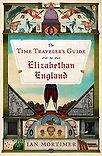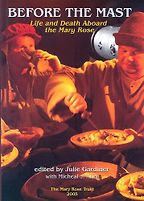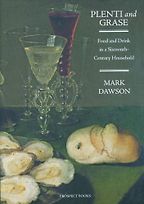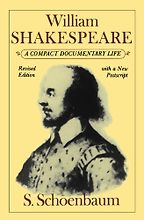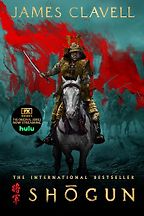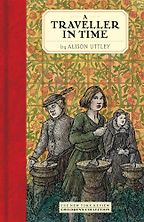What are these Tudor era books about?
They’re insights into living in the 16th century. Two of them are novels and one of them is a documentary life of an individual, so it’s much more particular to that individual, Shakespeare, than life for everybody else. But you can’t separate Shakespeare from the lives of his contemporaries…
Why do you think people are so fascinated by this period?
What I think attracts most people is the fact that it’s distant from us and is therefore very different, but it’s not so different that we can’t see their faces, or understand their own words. If you go to the medieval period, people have great difficulty imagining the individuals concerned. We don’t have many portraits, and when we read their words they’re normally in foreign languages and therefore English people, especially, find it very difficult to understand and relate to these individuals. Whereas in the 16th century, really from the time of Henry VIII’s court and Holbein’s paintings onwards, we can relate to their images, we can relate to the words, and I think that makes a world of difference.
So the interest in Henry VIII doesn’t stem from his horrific personal life, it’s more that he’s one of the first kings we have portraits of?
The dysfunctional royal family is obviously an allure for some people. It’s not that we don’t have any images: we do have images. But they’re just so few and far between, and they’re so stilted. There’s no real character in the faces of an early 15th century English portrait, whereas later we’ve got their words, we’ve got their faces, we can look at their houses. We recognize an Elizabethan house in a way that people don’t really recognize a medieval one, we tend to think of them as castles. It’s to do with familiarity, but at the same time as distant as we can get from our present moment without losing that familiarity.
So your first book is Before the Mast: Life and Death Aboard the Mary Rose, about the people aboard the flagship of Henry’s navy. This boat sank in Portsmouth Harbour in 1545, but was salvaged in 1982 which is why we have so much information about it.
This is an amazing book! It’s not going to be everybody’s easy read, because it’s a huge book, but it’s incredibly detailed, it’s incredibly precise and it’s full of detail about the people aboard that one ship. It’s such a full time capsule as a result, because so much has been preserved from that one boat. Before the Mast is about what the artefacts say about life aboard the ship. If you want to know how old the sailors were, or how many teeth they had lost by the age of 30, this is the book for you. The ship itself is another volume, the guns aboard the ship are another volume. There is a huge amount known about that boat. So often as a historian you’re finding ranges of dates, here you have so much material so precisely recorded and explained, and with such a particular date. You have everything in context. I find that every time I use the book for reference I’m delighted by it. And it goes far beyond the normal limitations. For example there is a chapter in one of the volumes about woodwork where the author actually establishes how many trees would be required to make a boat. I find that amazing. In this particular volume you’ve got things like microscopic inspection of the combs to find out what hair lice they had, from 500 years ago, underwater. It’s a fantastic insight.
Are there any other good details?
Another thing I really revelled in in this book, was that somebody has done a calculation of the calorific value of the food available to the people on board the ship. There’s just so much. To cite any specific thing would be distracting you from the fact that it’s 500-600 pages of scientific analysis of everything they can find out about life aboard the ship. I think it’s terrific.
So did they eat less than we do?
No, they ate more! It wasn’t very good quality, but they were provided with more. If you think about it, you’ve got to be aboard a ship in all weathers, and you could be aboard for weeks on end. There’s no heat and you’d have to deal with the cold and terrible conditions. There’s not really enough space to lie down and sleep. You’d be working most hours around the clock, you could be woken up any time to start working. And then fight, of course. These were soldiers on board. The calorific value required to stay alive and fit and active on that ship! It makes you and me look ridiculously lazy and indolent. You have to supply a decent level of nutrition to people in those circumstances. But of course it very often did go rotten and people went hungry. They didn’t have any means of keeping food very long. Things got wet.
Let’s go on to your next book, Plenti and Grase by Mark Dawson.
I like this book for very similar reasons. There’s a wonderful book by Barbara Harvey, an academic who I think has now retired from Oxford, called Living and Dying in England 1100-1540: The Monastic Experience. In that book she took the accounts of the monks of Westminster and subjected them to minute detail in order to work out how people really lived their lives. Where was their food coming from? What was their life expectancy when they became members of the monastery? This author, Mark Dawson, has been inspired by Barbara Harvey’s book and he’s decided to do something similar for a 16th century aristocratic household, namely the Willoughby family of Wollaton Hall near Nottingham. He has gone to great depths working out what food they really ate, when they ate it, when they travelled etc. It’s rare to find a book that detailed, that scrupulous, that full of information which is reliable, with all this great context of this family house, which still stands by the way. It’s provided so many answers to questions I was asking, and it’s beautifully written as well. I thoroughly enjoyed Mark Dawson’s book because I’m fascinated by the reality of the past: not just the stories people told, but the way people physically did things, the things they ate. I really got a lot out of his book. I recommend it to anybody who is interested in how the great and the good lived in the late 16th century.
Do you want to give an example from the book that really stuck with you?
I’m interested in diet and health, so having detailed accounts for when they stopped eating fish, for example. At what period did the Wednesday, Friday, and Saturday fish-eating days decline? Did they eat breakfast? That’s something I’ve written about at an academic level and he has some evidence to show for that. Lots of details like that, but also details of what was in the buildings, what was in the rooms. It’s a really brilliant study.
Did people not have breakfast in Tudor times?
Before about 1600 people tended not to eat breakfast. It’s in the last decades of the 16th century that breakfast became habitual. In the Middle Ages you would eat breakfast if you were going on a long journey and therefore getting up early, or if you were a worker working in a field, on a harvest day, which might be a 16 or 18 hour long working day. But on the whole most people didn’t eat breakfast. They had dinner in the late morning and then supper in the mid-to late afternoon. Those were the two meals of the day. There were a few exceptions – aristocratic families who started having ceremonial breakfasts in the 16th century and if you were ill you might have breakfast as well.
But in the 16th century all the times started to get shifted around, because people increasingly worked for other people, rather than sorting out their own times of working during the day. Therefore they have to stay at work till much later, so they can’t have supper till much later, so they start eating lunch instead of dinner in the late morning and they have to have breakfast before they start. So there is a shift to a three meal pattern. The Willoughby family didn’t. Some of their staff who went on journeys did have breakfast, but on the whole it’s a very conservative, Catholic household. They didn’t eat much breakfast.
Your next choice is about the life one of the most famous individuals of the era. Tell me about Schoenbaum’s William Shakespeare: A Documentary Life.
Everybody has an interest in Shakespeare, but if you have got a serious interest in Shakespeare, at some point or other you will imagine to yourself that there ought to be a big book that reproduces all the important documents relating to Shakespeare’s life and all the spurious ones as well, and give an account of everything in chronological order. This is the way I imagined somebody should produce that book and then I happened to be in Stratford-upon-Avon and there was the very thing! This was it, Shakespeare: A Documentary Life, which is still available in the cut down version. It was exactly what I had hoped for. I am passionate about the reality of the man and his experiences that led to all those plays being written and all that poetry.
My own original training was as an archivist, so there’s the information angle as well. I want to know where this information comes from about him. I’m interested in the Shakespeare authorship debate too, so I’m very pleased to have this big book at my disposal. Every time I need to cite a particular document, I’ve got it there to hand. It’s a wonderful resource, and if anybody is interested in Shakespeare the man, it is an essential resource.
Is there any doubt about whether Shakespeare actually wrote Shakespeare?
No serious scholar would ever entertain the idea that Shakespeare didn’t write Shakespeare, but I don’t think anybody has properly articulated why there is this no-need-to-doubt. That’s the bit that interests me. Because of my medieval studies I cover historical evidence from a different point of view from most people in that you don’t take what is said at face value. Any piece of evidence you deconstruct to find out what was available information-wise to the person who created the evidence. So for a medieval chronicle, you don’t just see what the chronicle says, you work out how the information could have come to the person who wrote it down in the chronicle. For the Shakespeare authorship, there are enough documents showing he was William Shakespeare who is referred to as being one of the players. The most critical piece of information for me is the mentioning of Henry Condell and other players in his will, in his own hand, which is confirmed by the legal copy of his will, in 1616. So we know that the executor of William Shakespeare’s will knew William Shakespeare the man was William Shakespeare the player from the mention of the other players he was acting alongside. From looking at pieces of information like that, who knew what, who knew who, you can demonstrate that William Shakespeare of Stratford-upon-Avon was William Shakespeare the player and William Shakespeare the author. Now it is entirely possible, by some extraordinary feat, that somebody else had some ideas that fed through to William Shakespeare, and to a certain extent that’s true because other players helped with various lines, other playwrights helped with various lines. But the bulk of the genius we associate with the man is associated with William Shakespeare of Stratford-upon-Avon, because we can prove his contemporaries associated it with him, and that he knew those contemporaries. Apart from the wild dreams of circumstantial blithering idiots, there is no alternative. If you look at some of the arguments put forward, you just think “Oh my God! Go and do some historical research!” But I delight in the fact people question things, and tackling those questions is a pleasure to me. So Schoenbaum’s Documentary Life is a fantastic resource.
What are current thoughts on where he got the range of emotional experience to write his plays and poems?
There are so many current thoughts about Shakespeare. If you go to a specialist Shakespeare library and look at all the material that’s been written, and continues to be written, it’s a one-man industry. It would be impossible for me to encapsulate. I favour the writers who suggest the man derived his experience from growing up right in the middle of England, and yet also had experience of the court in London, and London at a time of growth. He’s got fingers in so many different pies. He’s familiar with aristocrats, he’s familiar with labourers in Stratford-upon-Avon and in London. He has a range of experiences which allow him to synthesize and or empathize with people in a wide range of different positions in life. Also, there was so much knowledge flooding into London, you can see how society is changing. He was well-positioned to be the author who describes London riding the crest of this brave new world at the end of the 16th century.
But he personally was married with three children? He didn’t lead a life of tragedy?
He lost one of his children – that’s a tragedy. He clearly had an emotional life which was intense, to write those poems. You have to write from experience if you’re going to write anything as intense as that, so his love life must have been intense. It was varied, and it probably would have fallen well short of modern moral standards. But W.H. Auden remarked on the fact that most writers don’t have interesting lives, there’s no point in a writer writing an autobiography. Besides which if he’s got anything interesting to talk about that was worthwhile, he’d probably write it into his work anyway. I think Shakespeare, in many ways, is the proof of that. There is very little point of writing the life story of a man who spent his time at his desk with a pen in his hand, or on stage directing people.
Your fourth choice is the novel Shogun by James Clavell, which I read as a teenager and absolutely loved.
Yes, I was 15, I think, when I read it. I couldn’t believe that no one had ever written other books like it. I remember going to my English master at school and saying “What else is like this? I want to read more books like this!” I can’t remember what he recommended, but I can remember picking them up and thinking they were nothing like Shogun. I was so entranced by the world of the 16th century he created that I’ve really had a fascination for it all my life. I never really enjoyed anything else that James Clavell wrote, but that book really stands tall. There’s so many clever ideas in there, like introducing Japanese lines so the reader flatters himself that he’s understanding a bit of Japanese as he goes through it. It’s a book that people can easily fall in love with.
Plus you mentioned in your email that it’s based on a real person.
Yes, Will Adams of Gillingham in Kent. To think that, by the time of the death of Elizabeth I, there was an Englishman resident in Japan, really captured my imagination. Will Adams was a remarkable pilot, which doesn’t come through in the novel. He’d sought the North East passage, he’d been as far as the Falkland Islands in the South Atlantic, he’d been all over. He’d worked for the Barbary Company, so he had run the gauntlet of pirates in the mouth of the Mediterranean. He basically navigated around most of the known world long before he undertook that job for the Dutch sailing to the Far East. He was a very experienced man, one of the great English pilots, but of course there were so many English navigators like this, at the end of the century, because over the period from about 1540 to 1590 England just leapt ahead. Having been quite a backward nation in terms of seafaring, it suddenly became the furthest reaching and capable maritime nation.
How do you feel now, as a historian, reading Shogun? What are your thoughts about accuracy in historical novels?
The real Will Adams did not become a samurai in quite the way Clavell describes, he doesn’t occupy anything like the position John Blackthorne occupies, but it’s based on truth. If it’s a good historical novel with something important to say, saying it is much more important than whether it’s accurate or not. There is no such thing as an accurate historical novel: they’re all all over the place. If you started to be accurate in a historical novel, you’d lose all your modern readers because you’d have to insist on so much deference, so much hierarchy, you’d have to insist on such a high level of cruelty in society. Society was fundamentally violent and fundamentally sexist – we couldn’t possibly tolerate anything that reflected that accurately. So accuracy to my mind – as long as there’s nothing stupid like having people live on after they’re dead – is much less important than having something to say. In James Clavell’s Shogun, he has this meeting of West and East so that you walk away from the book thinking “What would it really have been like to be the first Englishman in Japan?” You don’t have easy translations, there is no phrasebook you can go to, the culture is so different. It is, in some ways, a wonderland, and on the other hand, it’s a place of horror. In the novel, one of the crew is beheaded and not long after someone is boiled alive as a punishment. You have, on the one hand, the geishas and the beauty of the lords’ courts, and the poetry and, at the same time, you have the horror and you have to imagine what this world would have been like. So the fact it’s not wholly accurate in representing the real Will Adams’s experiences doesn’t bother me in the slightest.
The main thing that stuck with me from the book is Blackthorne comparing the cleanliness of Japan and its bathing culture with the fleas and dirt he’d been used to in England.
Well quite! Personal cleanliness is one of my specialist subjects from this period. One of my favourite lines on this is actually from a person who grew up in Exeter, not far from where I live, in the late 17th century. This character was kidnapped at the age of 14 by the Barbary pirates and he spent the next 20 years as a slave in North Africa. When he got home, he writes a “True Story of the Mohammedans” because he wants to put right all the stories about people living in North Africa. One of the things he emphasizes is how clean people are. If you were low status in the Western world, you didn’t have the highest standards of personal cleanliness – you couldn’t afford to. And it’s great looking at someone from the Western world describing the Middle East/North Africa, and being fascinated by these cleanliness rituals. James Clavell, unwittingly, though I’m sure he didn’t know the book I’ve been describing, does the same thing for John Blackthorne discovering the cleanliness of the Far East. So that’s another delight of the book, I quite agree with you.
Your last book is a children’s book, A Traveller in Time by Alison Uttley. One on-line reviewer on Amazon.com calls it “an almost perfect book.”
It’s a magical book, it really is. I was so impressed. It is astoundingly well imagined and extraordinarily well researched. It is almost perfect. There are a couple of slight factual errors in there and in terms of accuracy, obviously what I was saying about cruelty you don’t have reflected in the details because it’s a children’s book. You couldn’t possibly reflect the horror things were for children in the late 16th century! It’s very lucid in the way it goes from the modern, to the 16th century, this girls goes to and fro seemingly without being able to control which period she’s living in. But the magic and the way she falls in love with the 16th century is so beautifully done, you cannot help but be carried away by it. I read it to my daughter two years ago, when she was ten, and it was such a privilege. We both could not get enough of it.
In your email you said you’d put this book alongside classics like Black Beauty and The Diary of Anne Frank, so I presume that even if you’re not particularly interested in the 16th century, you’re going enjoy this book…
Oh yes. One of the things I’m always at pains to emphasize is that history is not about the past, history is about people. If we want to understand people, we need to see them in different times from our own. We need to understand them over longer periods of time, or see them in extreme circumstances. We get a much better idea of what the human race is by looking at it over several hundred years, rather than just by looking at what it’s like today. A good example of this was a recent BBC opinion piece – a headline about how the young have never had it so bad. Well, as a historian, if you look back over the past 1000 years, frankly the youth have never had it so good as they’ve had it these past 30 years. Youth has never been treated well. If you go back a few decades it was treated pretty poorly, and if you go back to the pre-industrial period it was treated very poorly indeed. Good history is about people, not just about the past for the sake of it. This book is really bringing that to the fore. Because these are interesting people in extreme circumstances, because the book is so passionate about other people, it does deliver what these other great children’s books do.
Five Books aims to keep its book recommendations and interviews up to date. If you are the interviewee and would like to update your choice of books (or even just what you say about them) please email us at [email protected]
Five Books interviews are expensive to produce. If you've enjoyed this interview, please support us by donating a small amount.

